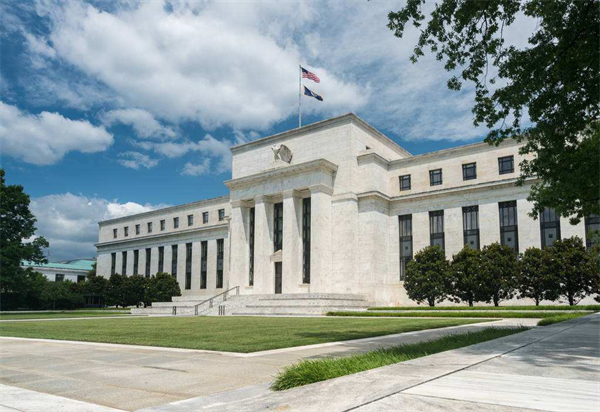
It is reported that the Federal Reserve will hold a policy meeting from September 19th to 20th to make a decision on interest rate issues. However, there have been significant disagreements within the Federal Reserve on the issue of interest rate hikes, which has attracted widespread attention from the outside world.
Chicago Federal Reserve Bank President Gullsby recently stated that the Federal Reserve has completed its current interest rate hike cycle and the focus has shifted from raising interest rates to how long it needs to maintain interest rates at high levels to achieve inflation targets. The overall forecast of the Federal Reserve is that interest rates need to remain relatively high for a relatively long period of time to ensure inflation returns to the 2% target.
Some officials are concerned that raising interest rates may lead to unnecessary economic recession or financial turmoil. Although the US economy grew at a strong 2.1% annualized rate in the second quarter and may exceed 3% this quarter, these officials are skeptical, especially considering the sluggish economic growth in regions such as Europe and the lagging impact of past interest rate hikes.
But Logan, the chairman of the Federal Reserve Bank of Dallas in the United States, holds a different view. Logan believes that the task of reducing inflation has not yet been completed, and some inflation indicators are still very high, especially according to statistics from the Dallas Federal Reserve Bank. The inflation rate of 2.8% in the past three months is not enough to stop the Federal Reserve from raising interest rates, indicating that the Federal Reserve still needs to raise interest rates. These officials are anxious about inflation and hope to raise interest rates again this autumn as a precautionary measure. These decision-makers are concerned that after ending their tightening policies, they may find their effectiveness insufficient in the coming months. If financial markets are misled into thinking that inflation and interest rates have stabilized, but the results are counterproductive, it may have a huge impact on the economy.
As the date of the Federal Reserve's interest rate meeting approaches, Federal Reserve officials will gradually enter a "silent period": according to regulations, 10 days before the Federal Reserve meeting, Federal Reserve officials are prohibited from speaking out to the outside world about policy views such as interest rates. However, based on the previous statements, several Federal Reserve officials, including Federal Reserve Chairman Powell, supported interest rate hikes.
The latest CME "Federal Reserve Observation" data shows that the probability of the Federal Reserve maintaining interest rates unchanged at 5.25% -5.50% in September is 92%, and the probability of raising interest rates by 25 basis points to the 5.50% -5.75% range is 8%; The probability of maintaining interest rates unchanged by November is 52.9%, the probability of a cumulative 25 basis point increase is 43.7%, and the probability of a cumulative 50 basis point increase is 3.4%. According to the chief economists of some major banks in North America, the Federal Reserve has stopped raising interest rates and is likely to lower them by about one percentage point next year.
At present, the market is showing high vigilance towards internal disagreements within the Federal Reserve. Because predictions and decisions about interest rates have a huge impact on the broader economy, affecting various financial markets, including stocks, bonds, and commodities.
The main issues currently facing the Federal Reserve include continued price increases and a sustained slowdown in economic growth. In addition, it also faces the risk of supply chain disruptions. Industry insiders are highly concerned about the outcome of this interest rate meeting and how the Federal Reserve will respond to the dual challenges of current high inflation and severe economic conditions.
Although there are views that the US economy will achieve a successful soft landing, the current market is still tense and worried about the continued pressure of inflation; Another view is that a recession in the United States is approaching, and the recent strike by the United Auto Workers may further push up inflation in the United States, making the economy even worse. Whether it is a soft landing or a recession, the outside world is closely monitoring the huge divergence of the Federal Reserve on interest rate hikes and the future economic direction.

According to a recent report by Rich Asplund, a columnist for Barchart, the global sugar market is currently experiencing a complex and profound supply-demand game.
According to a recent report by Rich Asplund, a columnist f…
On January 13th local time, the three major US stock indice…
Recently, the 2026 edition of the MIT Technology Review lis…
On January 15, 2026, the US military announced the seizure …
At the 2026 J.P. Morgan Healthcare Conference, a joint anno…
For much of 2025, the market was rethinking whether the dol…